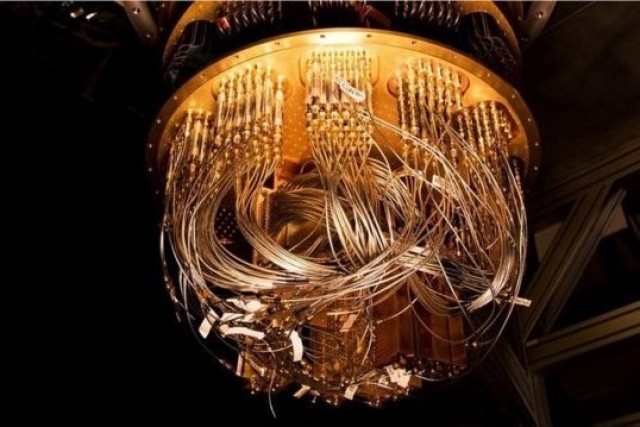Austrian physicists have developed a new architecture for building universal quantum computers, which reduces the number of physical qubits for calculating complex mathematical problems. This was reported by the press service of the University of Innsbruck.
Quantum computers are special computing devices whose power grows very quickly due to the application of the principles of quantum mechanics in their work. They consist of so–called qubits - memory cells and primitive computing modules capable of storing both zero and one at the same time.
As a rule, qubits can be in this state for an extremely limited time, since random interactions with objects of the surrounding world can destroy the quantum state in which they are located and break the ties that unite them with neighboring quantum memory cells. This is one of the main obstacles to creating complex computing machines containing several hundred or thousands of qubits of any type.
Professor Lechner and his colleagues have developed an unusual approach that allows solving this problem using a new architecture for building universal quantum computers. By the last word, scientists understand quantum computing machines that perform calculations according to the same logical principles as ordinary computers.
Austrian physicists have discovered that such computing systems can be built on the basis of the mathematical principle of parity, according to which most of the physical qubits of the system encode not logical bits, but a checksum, a kind of distance between neighboring cells of information. This allows some types of two-qubit logical operations to be performed on a single physical qubit, and also protects memory cells from interference.
This can be implemented on any physical quantum computer, including machines based on ions, superconductors, photons and cold atoms. According to the calculations of scientists, the approach they have created will significantly speed up many complex quantum calculations, including Fourier transforms and cracking ciphers using the Shore algorithm.
According to the researchers, they are already working on bringing this architecture to life on an experimental quantum computer, which is being developed at the University of Innsbruck. Successful verification of the operation of this approach for quantum computing will expand the scope of practical applicability of existing multi-bit systems, the scientists concluded.

